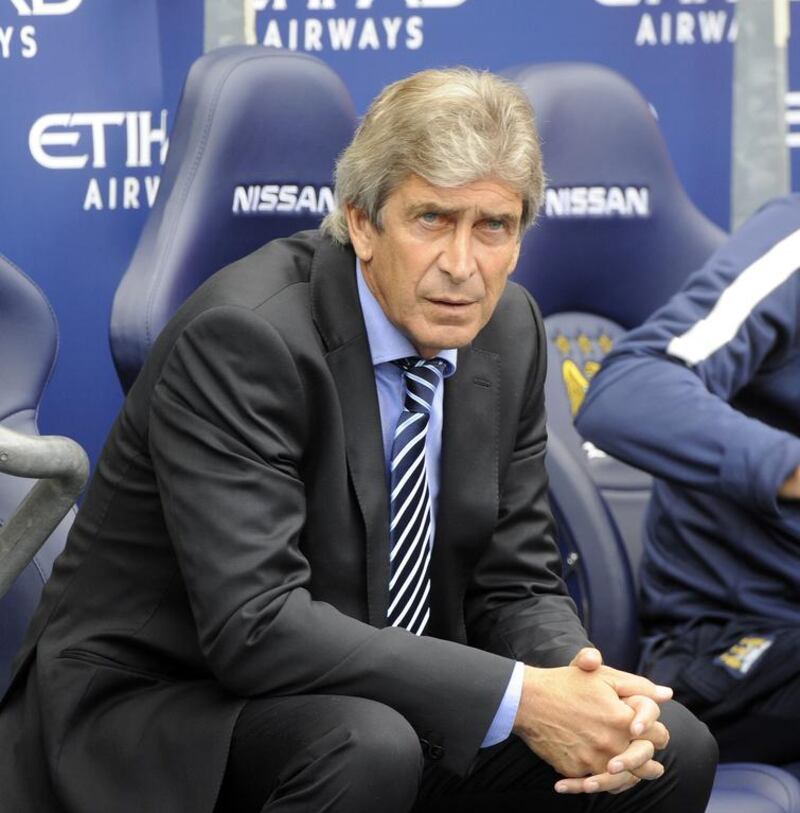One afternoon at Villarreal, I stayed behind after training to practise shooting.
I saw Manuel Pellegrini watching and went to speak to him.
I asked him, “Why do they call you the engineer?” He told me about his life as an engineer in his home city of Santiago, Chile, combining his studies with being a footballer and working on buildings.
I asked him about the earthquakes as Santiago has suffered from really large ones.
He explained that working on buildings in an earthquake area was another challenge in a tough job, but that he had worked on two buildings which had survived earthquakes.
He was proud of that, and he told me he’d been back to check they were still standing.
There was little chance of him leaving anything he did to chance, either as an engineer or coach.
He planned everything to the smallest detail, yet he was calm and trusted his players to do as he asked. If they didn’t, then he’d point that out, either privately or in front of the other players, whichever he felt was more appropriate. He’d also encourage younger players all the time, telling them what they were doing right and wrong.
Pellegrini is a great manager and a great person. He’s an intelligent man who had a life before football and he still has one away from it. He obsesses about football when he’s at work, but then he goes home and has other interests. He’s a cultured man who can talk books, places or films. He can speak English and had been to England before, in the 1980s to attend a coaching course led by Alex Ferguson at Lilleshall.
Pellegrini doesn’t say so much to the English media and is criticised for being boring.
Having worked with him for several years on a daily basis, I can assure you he’s definitely not, but I can understand why he chooses to say little.
As a footballer, it can be enjoyable to do a proper interview where you trust the journalist to reproduce your thoughts. With the English media, I learnt a long time ago to be very careful what I said, but even in Japan recently I gave an interview to some English guys.
A few weeks later, I woke up to see headlines and me offering opinions which were almost the opposite of what I’d said.
My words had been twisted out of context, and it’s getting more dangerous because the words go online around the world where they are often misinterpreted. Could you blame the highest-profile footballers and managers now for saying almost nothing?
Pellegrini has been criticised after his side lost to Barcelona — a club he was linked with only two months ago. That shows how quickly things change in football. He's one of the top 10 coaches in the world, and he's showed that by the clubs he's managed. If he left Manchester City, he'd easily get another top job.
He’s also a manager I loved playing for, one who got the best out of me after he signed me at Villarreal.
I became more and more confident throughout my first season under him. Pellegrini played me every week, the best thing a player can hope for, but he did far more than lift my confidence after a tough time at Manchester United.
He was calm, even when I wasn’t.
I was scoring a lot of goals in 2004/05 but was still four behind the league’s top scorer Samuel Eto’o when we played against Barcelona on May 22.
They were champions, but I scored a hat-trick in Camp Nou and we held them 3-3. Eto’o missed a penalty. I’d already scored twice against Barcelona when we beat them 3-0 at home.
My confidence should have been high, as I was just a goal behind Eto’o with a game to play, yet I was often overcome by anxiety and nerves.
That was my personality and Pellegrini knew that. He also knew how to manage me and took me off in a match.
“Why are you taking me off?” I asked angrily. “I’m trying to win the top scorers’ award.”
“The way you’re playing, you’re not going to score,” he said.
Our final match was home to Levante, who needed to win to stay up. I focused on the game so much that I didn’t realise Barcelona played the night before us.
Pellegrini told me the result as I walked to the lift in the team hotel. Now I knew I needed to score one goal to equal Eto’o and two to win the Pichichi and my first European golden boot.
“Be calm tomorrow,” he said. “Don’t be anxious.”
Simple, soothing and yet effective words, like hearing a doctor say that you will be OK. Because I trusted him, I believed him. We went a goal behind, but then I scored twice against Levante to win my first Pichichi and my first European Golden Boot.
sports@thenational.ae





